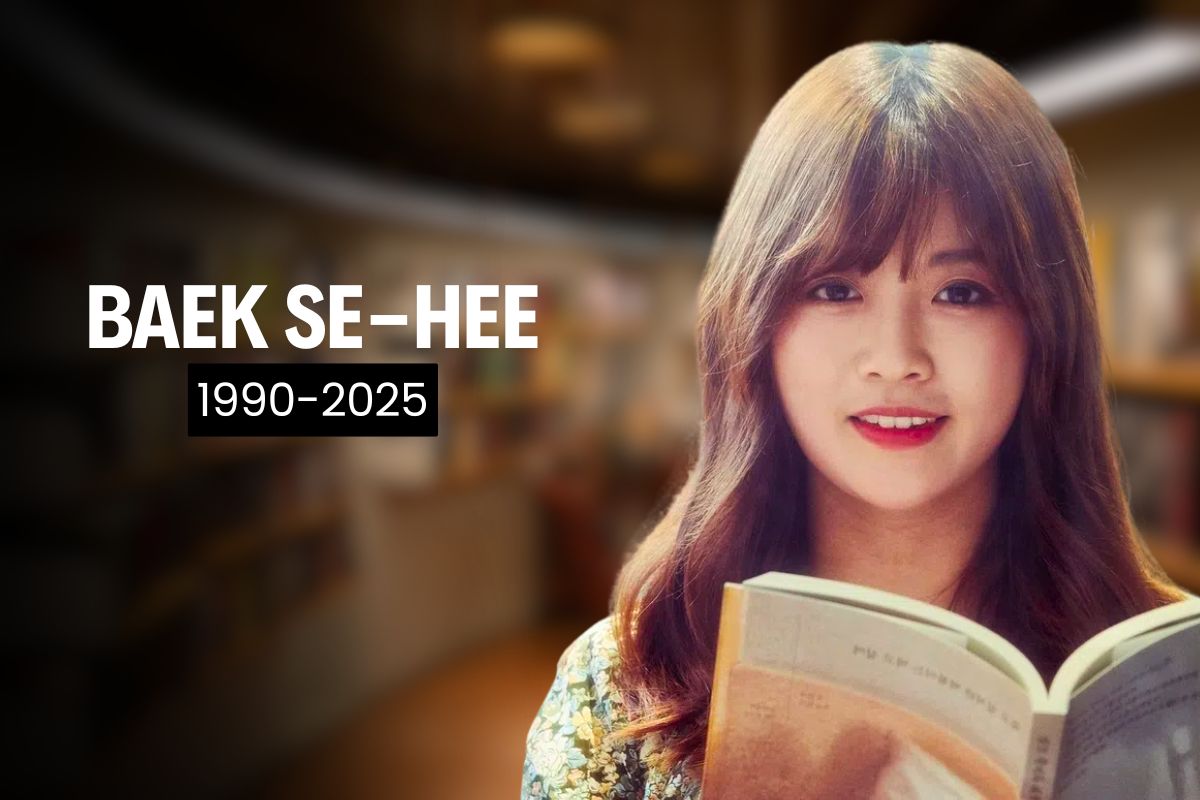Baek Se-hee was a South Korean author best known for her trailblazing memoir I Want to Die but I Want to Eat Tteokbokki, which opened up mental health conversation to popular speech. Baek Se-hee passed away in October 2025 at age 35, leaving behind a philanthropic legacy of empathy, honesty, and transnational impact.
Who Was Baek Se-hee?
Baek Se-hee is originally from South Korea and was a publishing industry professional before going full-time as a writer. Her first novel, I Want to Die but I Want to Eat Tteokbokki, published in 2018, was an open-book chronicle of her sessions with a therapist upon her diagnosis with dysthymia, or chronic depression. The novel captured readers’ hearts for its unsparing honesty and raw depiction of the illness of the mind.
Baek’s work was personal, conversational, and reflective. She never set herself up as some sort of authority or gave answers; instead, she invited readers to join her on her journey of self-recovery and learning. It was this process that made therapy and the discussion of mental health acceptable in South Korea, where the topics were typically off-limits.
Her Breakthrough Work
I Want to Die but I Want to Eat Tteokbokki was a cultural phenomenon. The title itself—confusing desperation with comfort food—spoke to the emotional conflict so many endure. The book appears as a dialogue between Baek and her psychiatrist, ranging from self-esteem, anxiety, and relationships to identity.
- Published: 2018 (Korean), 2022 (English translation)
- Influence: More than 1 million copies sold globally
- Translations: Translated into 25 languages
- Celebrity Endorsement: BTS member RM publicly recommended the book, which made it more popular
The book’s success, however, was not just monetary but also contributed to a wider cultural transformation. Mental illness was increasingly accepted as a subject in both Korean literature and the media, and Baek had been credited with being among the authors who opened the door for other writers and artists to delve into similar subject matter.
Themes and Influence
Baek’s work delved into the tension between exterior normalcy and interior disturbance. She described herself as smiling and capable on the outside but carrying a burden of persistent feelings of emptiness. Her work gave voice to an enormous number of readers who shared the same but didn’t have the vocabulary or tools to express it.
Some major themes in her work:
- Depression and dysthymia
- Therapy and introspection
- Social pressure and identity
- Emotional paradoxes
- The search for meaning
Her work became a source of reference for teenagers who were struggling to cope with issues of mental health, particularly under very stressful situations. The work was being mentioned constantly when issues of emotional well-being were discussed, and excerpts from the book were being shared far and wide on social media.
Her Passing and Legacy
Baek Se-hee died in October 2025 at the age of 35. The official reason for her death was not released, but that she had passed away was verified by the Korea Organ and Tissue Donation Agency. As one last act of kindness, Baek donated her heart, lungs, liver, and kidneys, saving five lives.
Her sister continued to relate that Baek had always dreamed of “sharing her heart with others through her work, and to give hope.” That was not only expressed in her writing, but in her ultimate act of giving life.
Global Recognition
Baek’s impact did not stop in South Korea. Her book was also received well in Southeast Asia, North America, and Europe. Her book was accepted by mental health practitioners as readable and emotionally compelling, and it made it onto reading lists, book clubs, and university debates.
The English translation, published in 2022, was especially appreciated for how well it maintained the tone and urgency of the original Korean. It introduced international readers to Korean culture and literature from a very personal perspective.
Final Thoughts
Baek Se-hee’s writing continues to encourage readers to confront their feelings with dignity and strength. Her legacy is one of candour, courage, and compassion. In an era in which mental illness remains woefully misunderstood, Baek’s voice is a guiding light to those who seek comfort and illumination.
Her story is a reminder that there is also the healing power of literature, and that there is space for happiness even in utter despair—such as the simple enjoyment of eating tteokbokki.


Leave a Reply